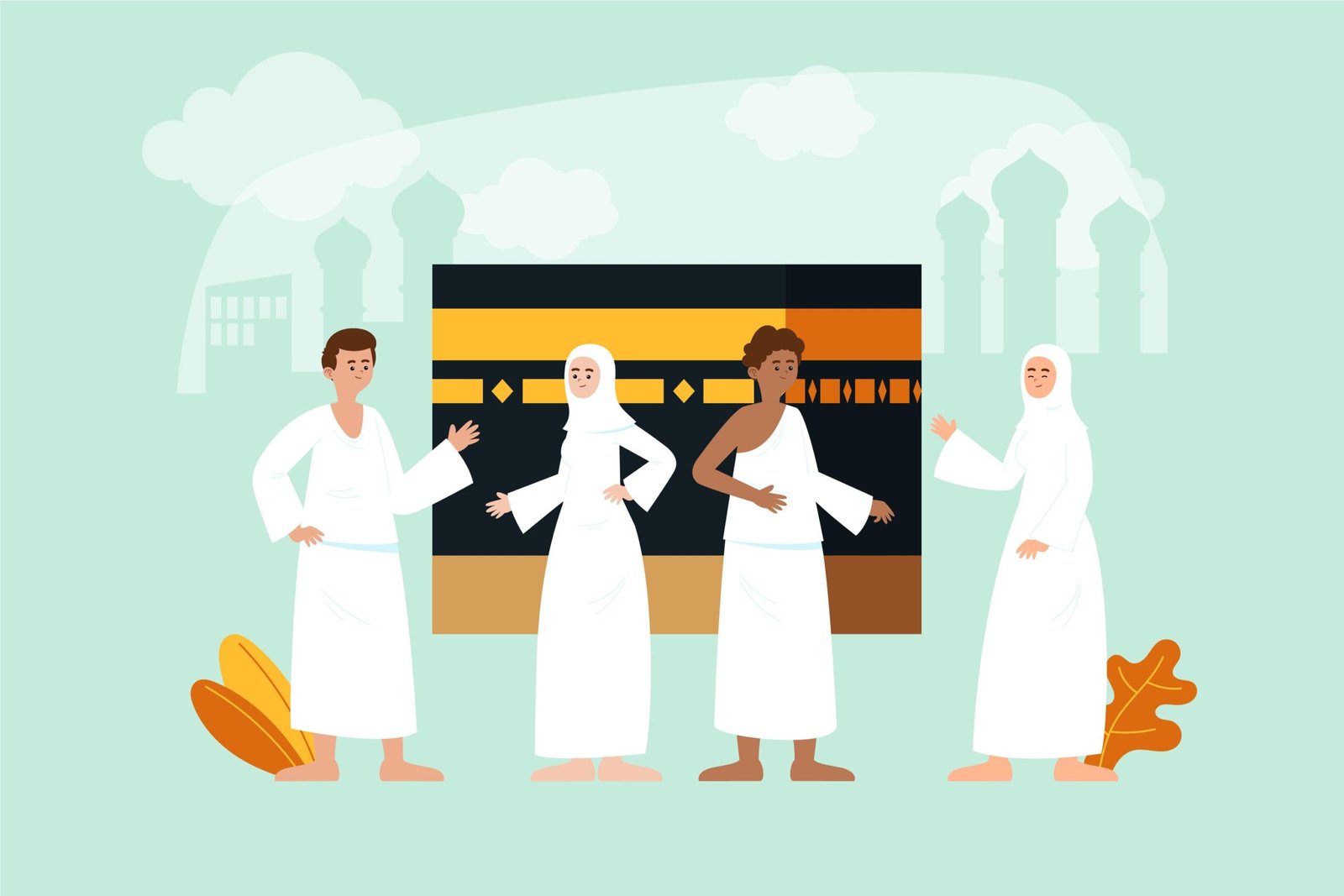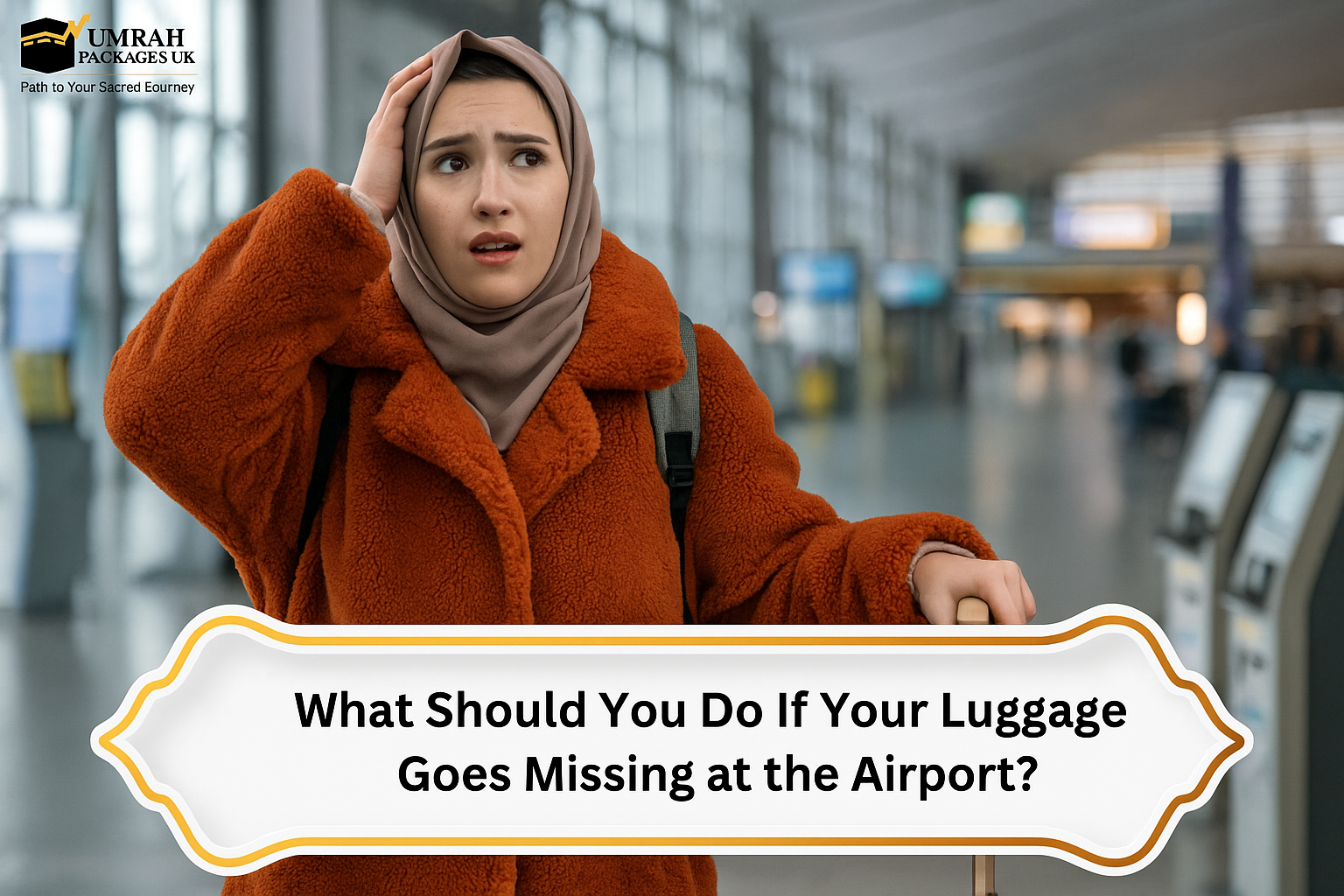Going for Umrah is massive, isn’t it? It’s a huge step for any Muslim coming from the UK. We spend ages getting the logistics sorted, the flights, the right visa, booking the hotel close to the Haram, but honestly, the communication on the ground? That’s what trips people up sometimes. Yes, most folks speak English in the main tourist bits, but making an effort with simple Arabic phrases for Umrah just changes the whole experience, and I mean that seriously. It shows respect, obviously, but more than that, it removes all those little, fiddly misunderstandings. Honestly, we truly believe that getting just a handful of these Arabic phrases for Umrah sorted is one of the quickest and best wins you can get during your preparation. It means you can stay totally focused on your spiritual journey, rather than stressing out over finding a toilet or just trying to buy a bottle of water, you know?
Getting the Basics Right: Essential Greetings
Look, the first thing anyone should learn, the absolute most important of all the Arabic phrases for Umrah, is a genuine greeting. It is the social currency. Say As-salamu alaykum (“Peace be upon you”). You’ll get back Wa alaykum as-salam. That’s mandatory. And here’s the thing you have to remember about manners: if you are asking for something, even something small like extra milk for your tea, say Min fadlak (please) first. Then, show proper thanks: Shukran for “Thank you.” Those simple essential greetings make you an instant friend. It’s a very simple thing that has a profound effect on people, really. It just does.
Navigating Makkah: Asking Where Things Are
Asking Where Things Are. Let’s be real, Makkah can feel completely overwhelming. Especially when you step out of the main crowd, and suddenly everything just feels foreign and loud. Getting turned around or lost is actually the worst thing, absolutely, particularly if you’ve got elderly family or small children with you. That’s why knowing how to ask for help is genuinely crucial. If you are looking for the bathroom, for instance, just ask Ayna al-Hamman? Or if you want to find the nearest exit from a huge crowd, try Ayna aqrab makhraj? You see, these are life-saver phrases. But I tell you what, after a long tawaf, the feeling of that cold, powerful sip of Zamzam hitting your throat is something that will stick with you forever, it’s just pure relief. Knowing these bits of Arabic phrases for Umrah is always worth it.
The Easiest Conversation Starters
Just knowing Na’am for “Yes” and La for “No” will honestly get you through most simple transactions in the local shops. If you just cannot understand what someone is trying to tell you, don’t panic at all. Simply say Ana la afham (“I don’t understand”). It’s a quick signal for them to slow down or maybe find someone else who speaks better English. Seriously, use the easy Arabic phrases for Umrah we’ve given you, and everything will be less stressful. That’s one less huge thing to worry about. Knowing how to ask “How much?” (Bi-kam?) is another essential one for any market visit, always handy.
Essential Communication for Your Hotel and Travel
Even when you are back at your hotel, simple Arabic can make a big difference to your comfort. Imagine your key isn’t working, or you need extra towels. Instead of relying purely on gestures, try to use phrases related to service. Asking for service, khidmah, or for help, musa’ada, is instantly understood. Also, learning the difference between the word for room (ghurfah) and bed (sareer) can save so much confusion with the housekeeping staff. We focus on securing you the best hotels through Umrah Packages UK, but even the best place needs clear communication. The easier you make their job, the better they can look after you. This kind of preparation using simple Arabic phrases for Umrah is just sensible.
Making Transactions Simple and Respectful
When you’re out buying dates or gifts, honestly, a little courtesy goes a really long way. Before you even ask Bi-kam? (How much?), just make sure you offer the initial greeting. If the price seems a bit too high, simply saying Ghali (expensive) with a friendly smile is a really polite way to open up a negotiation. And crucially, crucially, before you walk out of any shop, always remember to say Ma’a as-salāmah (“Goodbye” or “Go with safety”). It wraps up the interaction beautifully. These simple conversational snippets are some of the most practical Arabic phrases for Umrah for daily life outside the mosques. They help foster respect and goodwill, which is exactly what a pilgrimage should be about.
Final Thoughts on Language
Making the effort to learn even these few Arabic phrases for Umrah is a vital part of your spiritual and practical journey. You’re handling your spiritual commitment; let us handle the travel commitment. We are committed to making your trip absolutely seamless.
Book Your Fully Protected Package Now With Umrah Packages UK.
FAQs For UK Pilgrims
- Is it necessary to know Arabic for Umrah?
No, it’s not strictly mandatory, if I’m honest. English is pretty widely understood in the main tourist areas and the hotels. But if you can use just some simple Arabic phrases for Umrah, it really shows respect and makes all those daily interactions much, much smoother, and that’s always a lovely feeling.
- Can I ask a local for directions in English?
You can try, but you are much more likely to get clear help if you ask, Ayna al-Masjid? (Where is the mosque?) as it’s a known phrase. Honestly, just learn a handful of destination names in Arabic.
- What is the most important phrase for general conversation?
The phrase Shukran (“Thank you”) is vital, as gratitude is universally appreciated and is one of the most useful simple essential greetings to remember. Always say thank you.
- How can I learn these phrases quickly before I travel?
The best way is to pick just five Arabic phrases for Umrah and practise saying them out loud, repeatedly. Focus on the ones for greetings, thanks, and maybe asking for the toilet.
- Is the Zamzam water provided in the hotels?
Yes, Zamzam water is almost always available in hotels and certainly free and abundant throughout the Holy Mosques, that first cold sip is pure bliss after a long walk.








